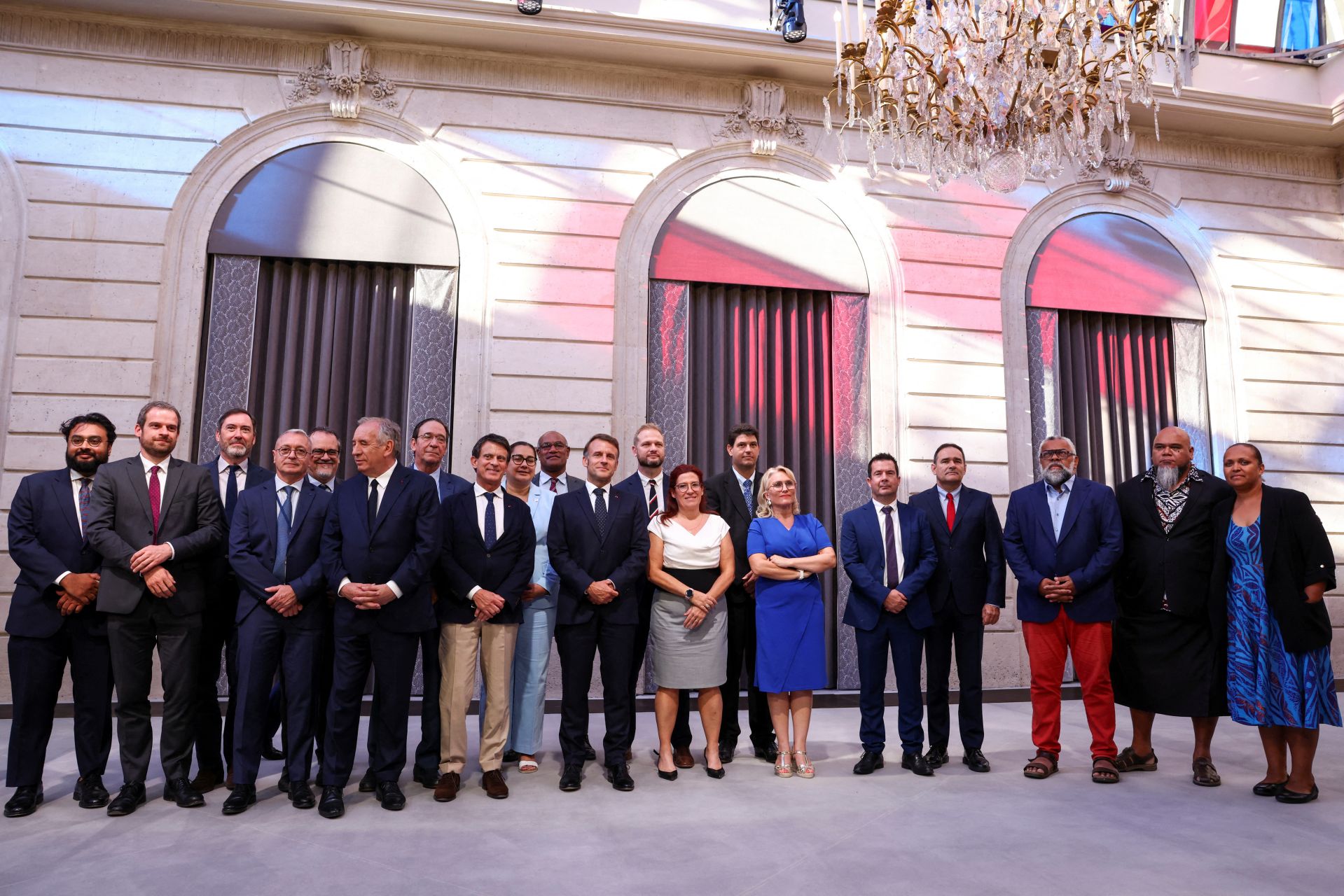- Home
- Middle East
- NCaledonia Politicians Agree on Statehood While Remaining French

French President Emmanuel Macron and President of the Assembly of the Southern Province of New Caledonia Sonia Backes pose with members of the French government and elected officials and representatives of the State of New Caledonia after signing a historic agreement enabling the creation of a “State of New Caledonia” at the Élysée Palace, Paris, on July 12, 2025. ©Tom NICHOLSON / POOL / AFP
France on Saturday announced a "historic" accord with New Caledonia in which the overseas territory, rocked by deadly separatist violence last year, would remain French but be declared a new state.
"A State of New Caledonia within the Republic: it's a bet on trust," French President Emmanuel Macron posted on X, hailing a "historic" agreement.
Receiving the signatories later, the president said that "after two agreements and three referendums, New Caledonia, through what you have signed, is opening a new chapter in its future in a peaceful relationship with France".
Macron had called for talks to break a deadlock between forces loyal to France and this wanting independence. New Caledonian elected officials, as well as political, economic and civil society leaders gathered near Paris to hammer out a constitutional framework for the territory.
After 10 days of talks, the parties agreed that a "State of New Caledonia" should be created.
Manuel Valls, the minister for overseas territories, called it an "intelligent compromise" that maintains links between France and New Caledonia, but with more sovereignty for the Pacific island.
Restoring the economy
The priority now is New Caledonia's economic recovery.
Last year's violence, which claimed the lives of 14 people, is estimated to have cost the territory two billion euros ($2.3 billion), shaving 10 percent off its gross domestic product (GDP), he said.
Prime Minister Francois Bayrou said Saturday's deal -- which still requires parliamentary and referendum approval -- was of "historic dimensions".
Home to around 270,000 people and located nearly 17,000 kilometres (10,600 miles) from Paris, New Caledonia is one of several overseas territories that remain an integral part of France.
It has been ruled from Paris since the 1800s, but many indigenous Kanaks still resent France's power over their islands and want fuller autonomy or independence.
Unrest broke out in May 2024 after Paris planned to give voting rights to thousands of non-indigenous long-term residents. Kanaks feared this would leave them in a permanent minority, crushing their chances of winning independence.
As part of the agreement, New Caledonia residents will in future only be allowed to vote after having lived 10 years on the archipelago.
A New Caledonia nationality
The last independence referendum in New Caledonia was held in 2021, and was boycotted by pro-independence groups over the impact of the Covid-19 pandemic on the Kanak population.
It was the latest of three since 2018, all of which rejected New Caledonian independence. Since the 2021 referendum, however, the political situation in the archipelago has been deadlocked.
Macron declared in early June he wanted a "new project" for New Caledonia.
The 13-page agreement announced on Saturday calls for a New Caledonian nationality, and the possibility for residents there to combine that status with French nationality.
Under the deal, a "State of New Caledonia" would be enshrined in France's constitution, and other countries could recognize such a state.
The deal also calls for an economic and financial recovery pact that would include a renewal of the territory's nickel processing capabilities.
Both chambers of France's parliament are to meet in the fourth quarter of this year to vote on approving the deal, which is then to be submitted to New Caledonians in a referendum in 2026.
AFP
Comments